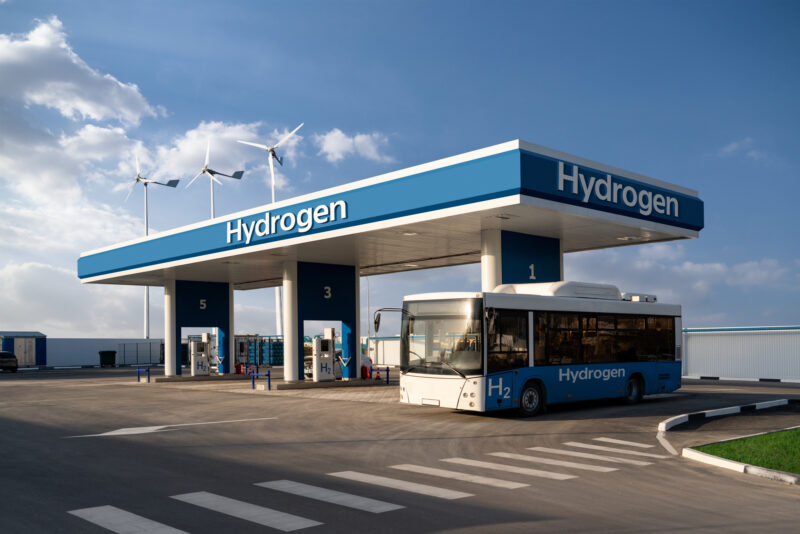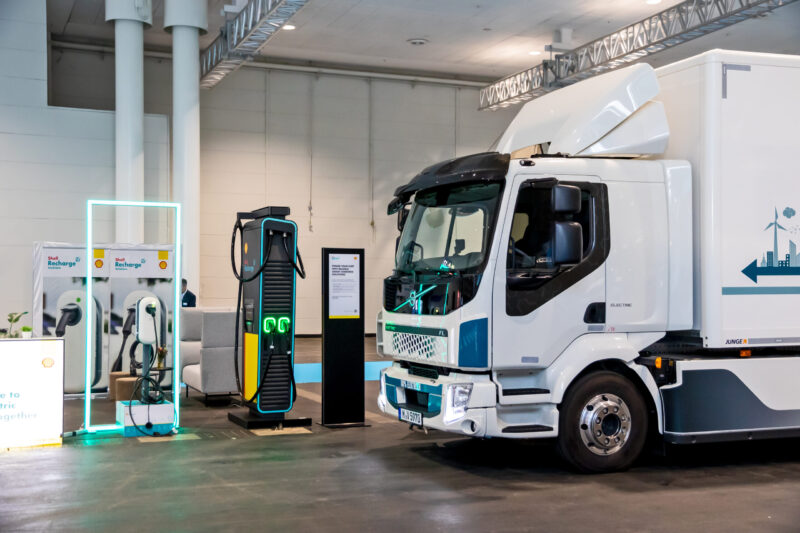Comparing Hydrogen Trucks vs Electric Trucks: Exploring the Future of Sustainable Transportation
This comprehensive article explores the benefits, challenges, and potential impact of both technologies, providing valuable insights for a general readership seeking to understand and embrace sustainable transportation solutions. No matter what truck you own or operate S&S Tire is here to help with a wide range of services including inspections, alignment, retreading, and much more.
Introduction to Sustainable Transportation
Sustainable transportation refers to the use of transportation modes and systems that have a low impact on the environment and are socially and economically viable. It aims to reduce the environmental effects of transportation, such as air pollution, greenhouse gas emissions, and reliance on non-renewable energy sources. Sustainable transportation is crucial for addressing climate change, improving air quality, and promoting energy security.
Understanding Hydrogen Trucks
Hydrogen trucks, also known as fuel cell trucks, are a type of commercial vehicle that uses hydrogen fuel cells to power an electric motor. These trucks generate electricity through a chemical reaction between hydrogen and oxygen, producing water vapor as the only emission. The process is clean and efficient, making hydrogen trucks a promising technology for sustainable transportation.
The advantages of hydrogen trucks include zero tailpipe emissions, long driving range, and quick refueling times. They offer a viable solution for heavy-duty and long-haul transportation needs, where battery electric trucks may face limitations.
Understanding Electric Trucks
Electric trucks, also known as battery electric trucks, are commercial vehicles powered by electric motors and rechargeable battery packs. These trucks produce zero tailpipe emissions and are highly efficient in converting electrical energy into motion. They are well-suited for urban and short-haul transportation, contributing to cleaner air and quieter streets in urban areas.
The advantages of electric trucks include lower operating costs, reduced maintenance requirements, and compatibility with existing electric charging infrastructure. They are ideal for last-mile delivery and urban logistics, where environmental and noise pollution are critical concerns.
Comparing the Environmental Impact
When comparing the environmental impact of hydrogen trucks and electric trucks, several factors come into play.
Emissions comparison: hydrogen vs electric trucks
Hydrogen trucks produce zero tailpipe emissions, making them a clean alternative to diesel trucks. Electric trucks also produce zero tailpipe emissions, contributing to improved air quality and reduced greenhouse gas emissions.
Energy efficiency: hydrogen vs electric trucks
Hydrogen trucks have higher energy efficiency compared to diesel trucks, but they are generally less efficient than electric trucks. Electric trucks have a higher energy efficiency due to the direct use of electricity to power the vehicle.
Impact on air quality: hydrogen vs electric trucks
Both hydrogen and electric trucks have a positive impact on air quality by eliminating tailpipe emissions. They contribute to reducing air pollution in urban areas and along transportation routes.
Analyzing Infrastructure and Availability
The infrastructure requirements for hydrogen trucks include hydrogen production facilities, storage, and refueling stations. On the other hand, electric trucks rely on a network of charging stations, which can range from standard electrical outlets to fast-charging stations.
The availability of refueling/recharging stations is a critical factor for the widespread adoption of hydrogen and electric trucks. While electric charging infrastructure is more prevalent, the development of hydrogen refueling infrastructure is gaining momentum, especially in regions with supportive policies and incentives.
Cost Considerations
In terms of initial investment, hydrogen trucks generally have higher upfront costs compared to electric trucks. However, hydrogen fuel cell technology is rapidly advancing, leading to cost reductions in the production of fuel cells and hydrogen storage systems. When it comes to operating costs, electric trucks have an advantage due to lower electricity prices and simpler maintenance requirements.
Long-term cost benefits depend on various factors such as fuel prices, vehicle utilization, and government incentives. Both hydrogen and electric trucks offer potential cost savings over the vehicle’s lifespan, making them attractive options for fleet operators and businesses making critical business decisions.
Performance and Range
Hydrogen trucks offer comparable performance to diesel trucks, with high torque and power output. They also provide long driving ranges, making them suitable for long-haul transportation. Electric trucks excel in urban environments, offering smooth acceleration and quiet operation. However, they may have limitations in terms of driving range, especially for heavy-duty applications.
The suitability of hydrogen and electric trucks for different transportation needs depends on factors such as route characteristics, payload requirements, and refueling/recharging infrastructure availability.
Challenges and Limitations
Both hydrogen and electric truck technologies face challenges in terms of infrastructure development, vehicle cost, and market acceptance. Hydrogen truck technology requires significant investment in infrastructure, while electric trucks may face limitations in driving range and charging infrastructure for long-haul applications.
The current market adoption of hydrogen and electric trucks is also influenced by regulatory frameworks, such as the Advanced Clean Fleets regulation by the California Air Resources Board and the support of organizations like the International Council on Clean Transportation.
Future Outlook and Potential Impact
The widespread adoption of hydrogen and electric trucks has the potential to significantly reduce carbon emissions and improve air quality. These technologies play a crucial role in the future of sustainable transportation, offering viable alternatives to traditional diesel trucks and contributing to the decarbonization of the transportation sector.
Advancements and innovations in both hydrogen fuel cell and battery electric technologies are driving the development of more efficient and cost-effective commercial vehicles. As these technologies continue to evolve, they will play a pivotal role in shaping the future of sustainable transportation.
Conclusion
The comparison between hydrogen trucks and electric trucks reveals the unique advantages and challenges of each technology. When considering the future of sustainable transportation, it is essential to weigh the environmental impact, infrastructure requirements, cost considerations, performance, and range of both hydrogen and electric trucks. The choice between these technologies depends on specific transportation needs, operational requirements, and long-term sustainability goals.
As the transportation industry continues to evolve, the adoption of hydrogen fuel cell vehicles and battery electric trucks will be instrumental in driving positive environmental and economic outcomes. Making informed decisions about sustainable transportation technologies will be critical for businesses, fleet operators, and policymakers as they navigate the transition towards a cleaner and more sustainable transportation system.
In conclusion, the future of sustainable transportation is closely linked to the advancements in hydrogen and electric truck technologies, offering promising solutions for reducing carbon emissions, improving air quality, and driving sustainable economic growth.



